

Karachi operation - target acquired
March 11, 2015, will go down in history as the day the Muttahida Qaumi Movement (MQM) lost its aura of invincibility in Karachi.
The crackdown against the MQM may have been a long time coming. There had been signs and warnings aplenty. But when it did happen, it sent shockwaves across the country, even among those tucked thousands of miles away in London.
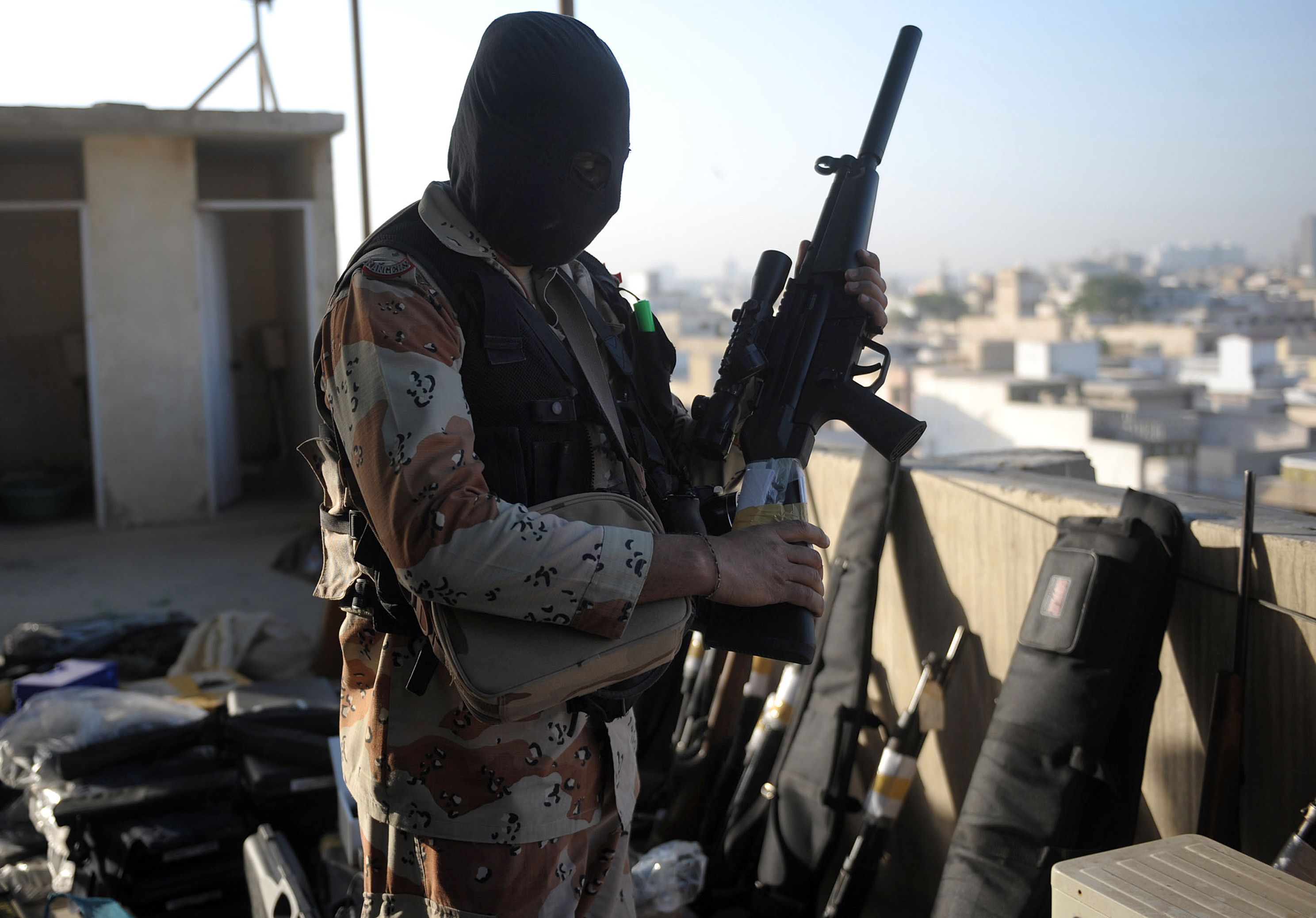
In a predawn raid, the Rangers arrested over 100 men from the surroundings of party headquarters Nine Zero, the adjacent residence of MQM chief Altaf Hussain and Khursheed Memorial Hall. The closely guarded-neighbourhood was stormed by men from the paramilitary force, who rounded up party activists and rummaged through drawers full of official records.
The paramilitary force took with it several party workers and nearly half-a-dozen suspected target killers, including Faisal Mota, who was convicted for the murder of Geo News reporter Wali Babar Khan in 2011. MQM senior leader Amir Khan was also taken into custody for 90 days.
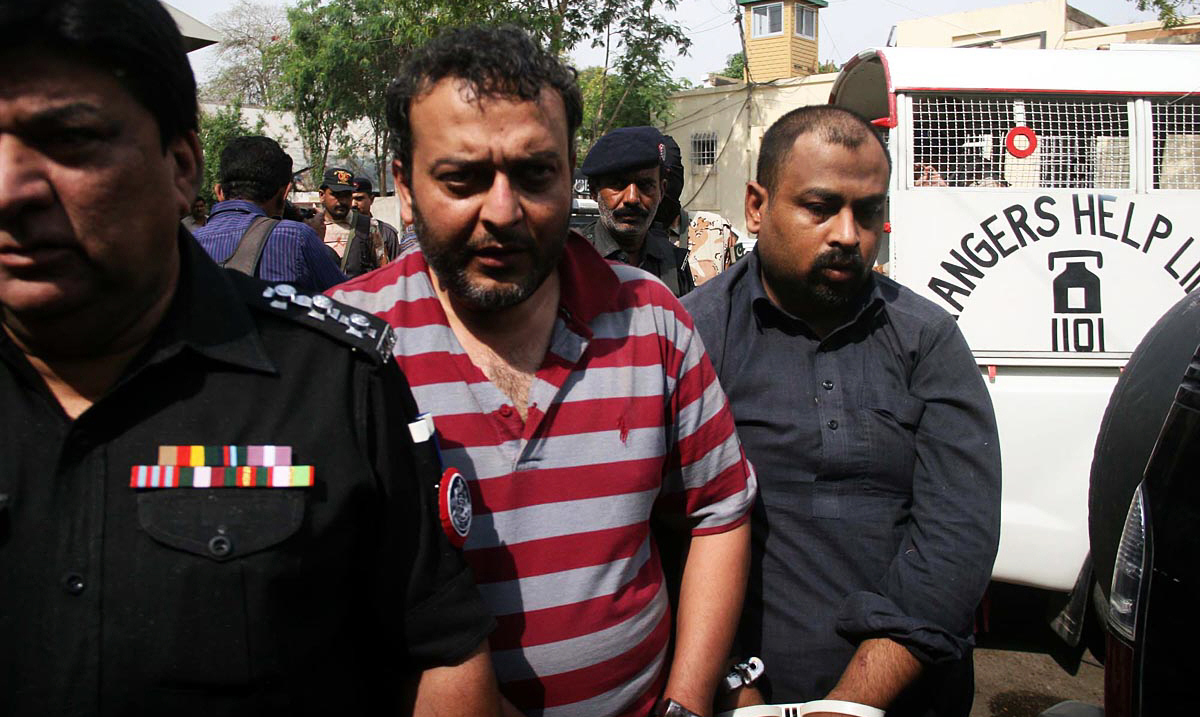
As the number of supporters gathered on the streets swelled, a gunfight ensued and resulted in the death of MQM activist Waqas Shah. It was initially believed that Shah died from a shot fired by one of the Rangers men. In fact, MQM leader Dr Farooq Sattar held a press conference on March 12, 2015, blaming Rangers personnel for killing their activist. “We have irrefutable evidence to prove that he (Waqas) was martyred from firing by a Rangers personnel,” said Sattar. A few months later, however, the paramilitary force arrested an MQM man for Shah’s murder.
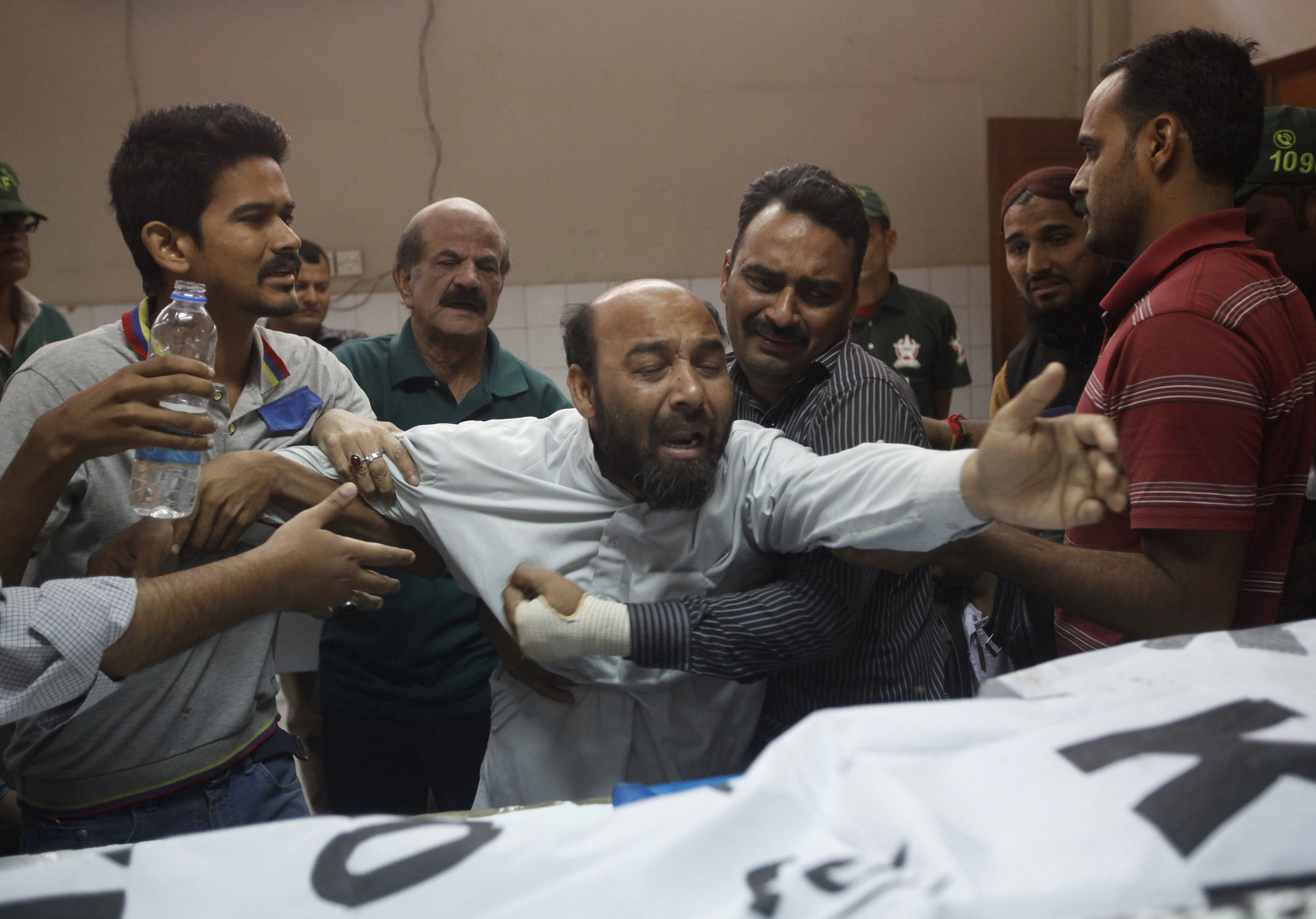
Origins
The Karachi operation began in September 2013, a mere four months after Prime Minister Nawaz Sharif was sworn in. It can be argued, however, that he was not the man driving the surgical operation against criminals in the megacity, particularly those working under the patronage of political parties.
The brains behind the targeted operation is believed to be Major General Rizwan Akhtar, who was the Rangers director-general at the time, and former Karachi police chief Shahid Hayat. After working in the city for a significant period of time, these men gained enough insight to design the operation and its modus operandi. Hayat was, however, removed from his post as city police chief in July 2014 as he was promoted to the rank ahead of his time. As for Akhtar, he was appointed as the chief of the country’s powerful intelligence agency, the Inter-Services Intelligence, in September of the same year and continues to hold the post.
These changes had little impact on the fate of the operation, which continued at the same pace.
High-ranking law enforcers, who were based in Karachi, believed that going after the MQM was necessary. “To restore peace in Karachi, it was very necessary to take action against the MQM or its militant wing,” said a senior police officer, who did not wish to be named. “MQM men had been involved in 80% of unrest in the city over the past few years. We can reduce crimes by 80% just by going after them.”
The initial days of the operation saw the police leading the operation. This was short-lived as a few months later -- around the time Shahid Hayat was transferred -- the Rangers took the driving seat.
Hits and misses in 2015
The second year of the Karachi Operation, 2015, marked many hits and misses for both, the law enforcers as well as the MQM. The year had followed an intense crackdown against MQM activists and political leaders, including former parliamentarians. The party, too, had taken to the streets to protest the alleged enforced disappearances of its workers.
“Our party had asked for an army operation against religious elements that have been growing their influence in the city to which the local police and agencies have been unable to respond effectively. But we saw instead was that the Rangers were called in and workers of political parties were linked to ‘gang war’ and terrorism,” says Khalid Maqbool, a senior MQM leader.
According to the party’s own data, over 200 MQM workers were taken into custody in 2015 by the Rangers for 90-day preventive detention. The MQM claimed that several hundred workers were arrested otherwise as well.
The most shocking arrests of 2015 were perhaps those of senior MQM leaders Amir Khan and Qamar Mansoor. Khan was detained during the March raid at Nine Zero, while Mansoor was detained during another raid at the party headquarters in July on charges of ‘arranging and facilitating’ hate speeches.
The law enforcers also arrested an MQM worker, Umair Siddiqui, who eventually turned out to be a big catch. According to the charges filed against him in court, Umair was running a ‘death squad’ on the instructions of MQM’s Karachi Tanzeemi Committee incharge Hammad Siddiqui. This squad was responsible for the deaths of around 120 MQM opponents.
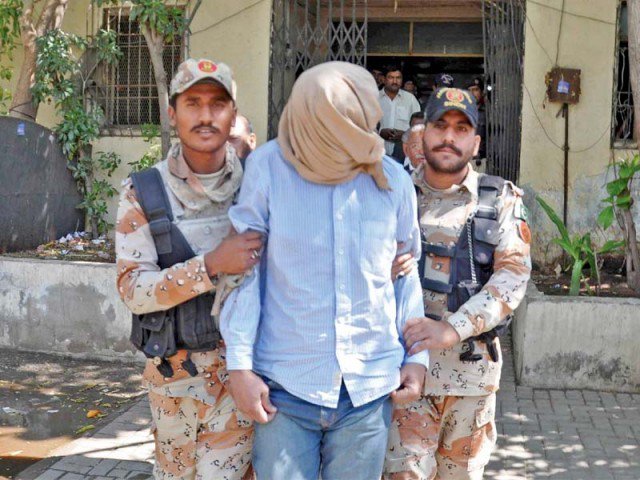
Moreover, Umair also confessed to an MQM worker’s involvement in the deadly Baldia factory fire of September 2012 that killed more than 250 workers. According to Umair, MQM’s Baldia sector incharge Rehman Bhola and his companions set fire to the factory after an extortion deal turned sour. He revealed that these men had taken refuge at shelters around Nine Zero. It was believed that Umair’s confessions during custody led to the March raid.
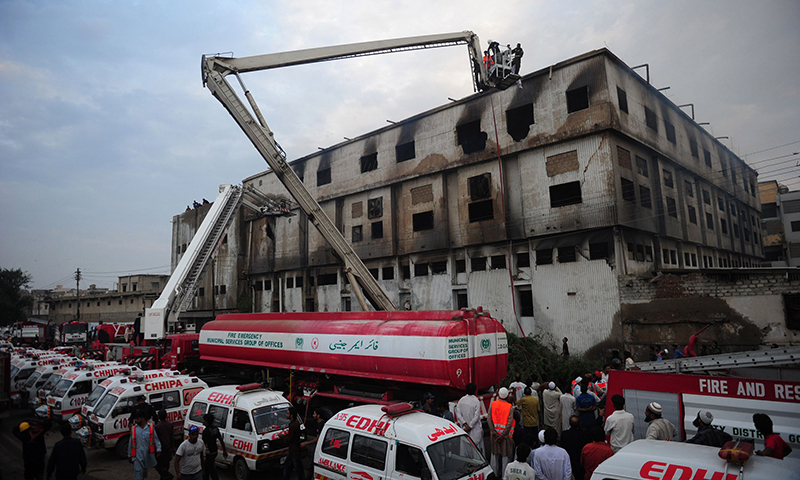
The circumstances surrounding Umair’s detention are shady at best. He was presented in court for remand on March 14, 2015, and the Rangers claimed that he was arrested a day earlier. However, Umair told the judge that he was picked up on February 15, 2015.
By this time of the Karachi Operation, the law enforcers had become comfortable declaring the political affiliations of arrested suspects; a practice that started after the arrest of Kazim Abbas Rizvi, associated with MQM’s Unit 178. The then Karachi police chief, Shahid Hayat, and Sacchal Rangers’ Brigadier Hamid held at joint press conference on October 1, 2013, to disclose that Rizvi was suspected of killing lawyer Naimat Ali Randhawa, who was affiliated with the Pakistan Muslim League-Nawaz and was pleading the murder case of journalist Wali Babar Khan. Two years later, Rizvi is still facing trial.
The public declaration of the suspect’s political affiliation created uproar among MQM ranks as well as the police department, leading to a ban on the practice by the Sindh chief minister. Like all other orders issued from CM House, this one too failed to make its mark and law enforcers continue to announce the parties that arrested suspects are affiliated with.
Going after the chief
The raid at MQM headquarters led to a speech by an outraged party chief – words that came back to bite him. On March 17, Rangers’ official Colonel Tahir went to Civil Lines police station to register a case against Altaf Hussain. He accused Hussain of threatening the paramilitary force of dire consequences following the Nine Zero raid.
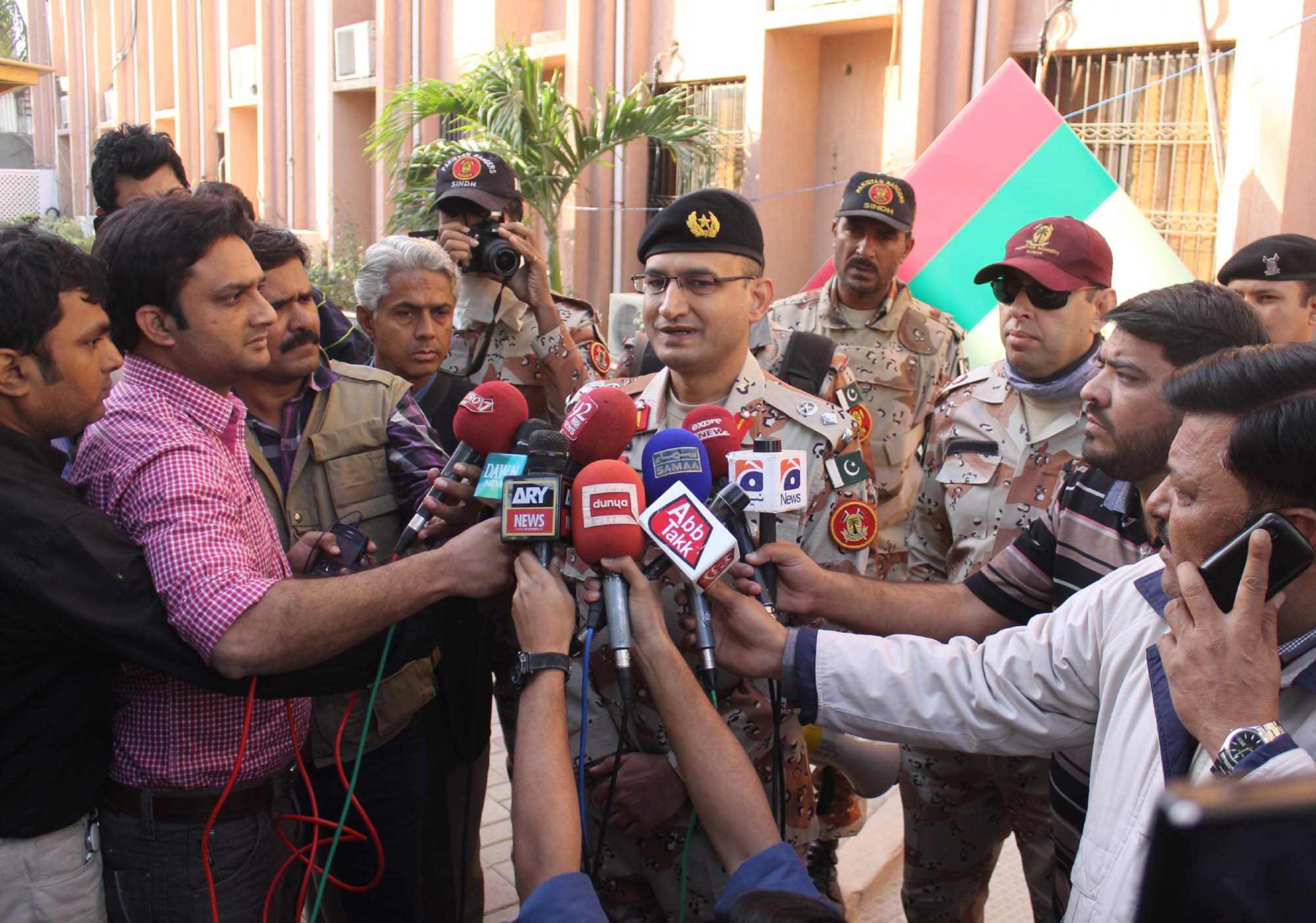
Once the shield of invincibility was broken, over 100 more cases were registered against Hussain with the same accusations: making provocative speeches and using derogatory terms against security agencies to target Pakistan’s national security and its institutions.
MQM called but no one listened
One of the biggest misses for the MQM was its inability to make its strikes a success last year. Shortly after the party would announce a strike, the law enforcement agencies would counter with a statement asking traders to keep markets open. Most of their strikes were partial at best
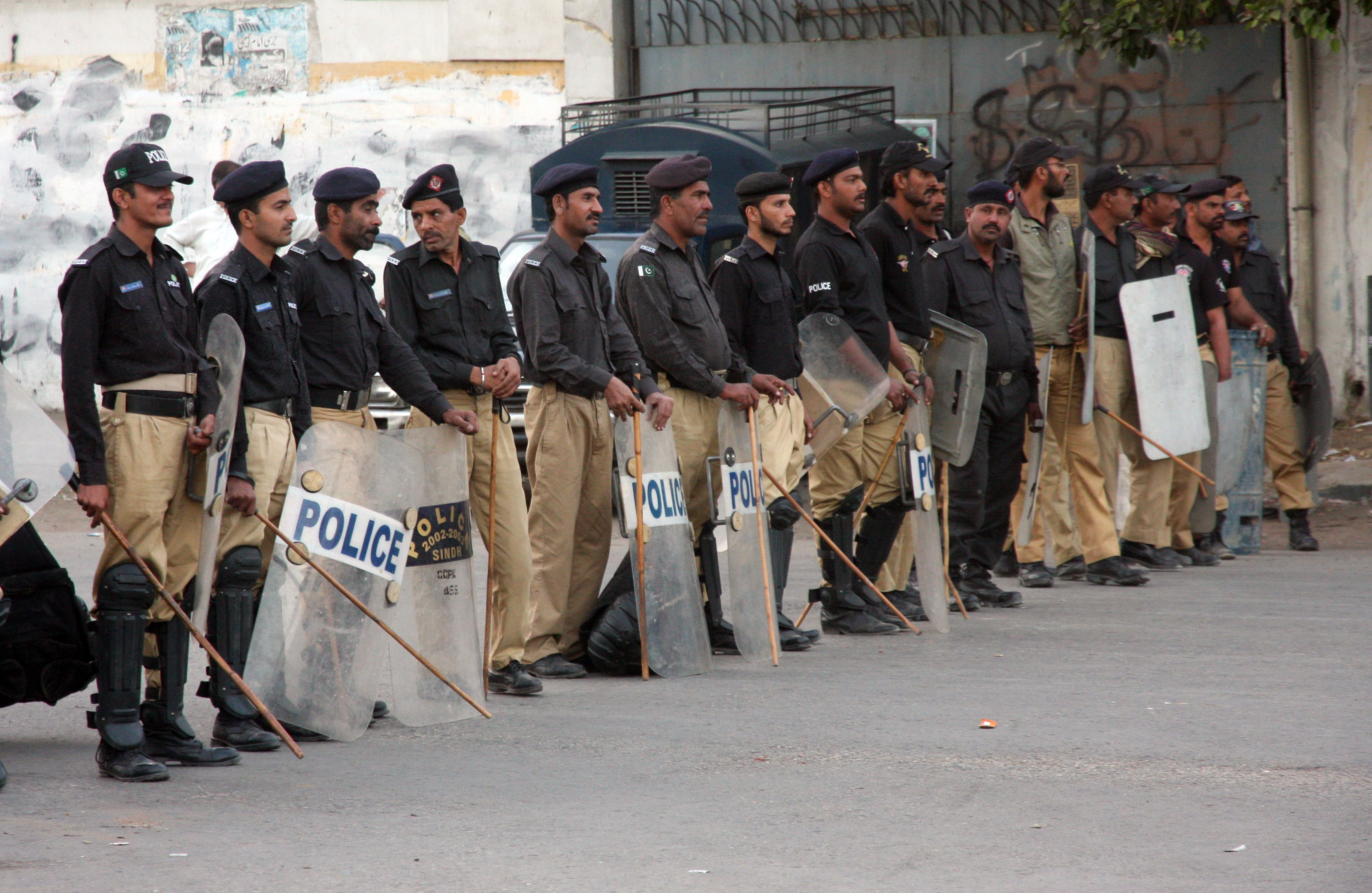
The law enforcers’ pledge to not let the city shut down at any cost was a main factor behind this apparent sign of MQM’s weakening street power. Backed by the home ministry, law enforcers went the extra mile to make sure shops stayed open, according to a high-ranking police officer, who requested anonymity. “If there are no strikes in Karachi, the credit goes to law enforcers,” he said.
Under this new policy, the Rangers and police personnel rounded up several suspects for forcibly shutting down businesses in order to show their strikes were successful. A large deployment of law enforcers was seen at major markets. Policemen and Rangers manned petrol pumps to ensure they stayed open. The MQM’s hegemony over the day-to-day operations of Karachi’s trade and commerce was dwindling.
Running businesses were appreciated most by the city’s businessmen. “There is a massive increase in investments as there are no strikes and no major law and order crisis like we saw in the past,” All Karachi Tajir Ittehad chairperson Atiq Mir told The Express Tribune. The traders’ leader was positive that business communities would invest in the city without any fear now.
“This practice (the Karachi operation) should continue to make sure Karachi remains peaceful and its economy improves,” he added.
Cooking up a RAW connection
Nearly a month after the March raid at Nine Zero, the charges against MQM took a giant leap as four party activists were accused of working for Indian spy agency the Research and Analysis Wing (RAW). Malir SSP Rao Anwar, who has earned the name of an ‘encounter specialist’ and had played a prominent role in the 1990s operation against the MQM, made these accusations in an explosive press conference on April 30, 2015.
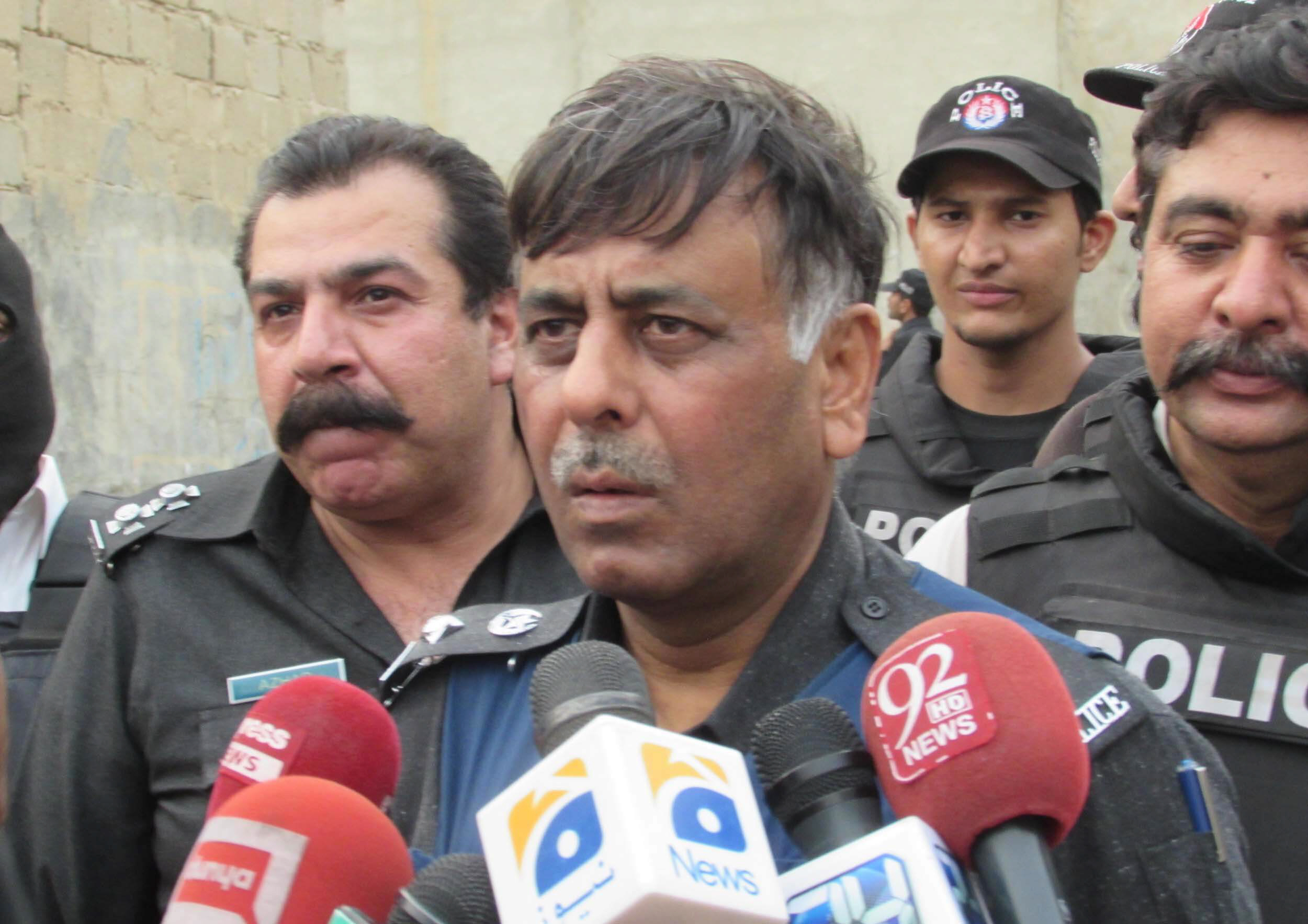
SSP Anwar announced the arrest of four MQM workers, allegedly working as RAW agents. “They (the arrested men) are in contact with the senior leadership of the MQM, including Zulfiqar Haider, Nadeem Nusrat and Muhammad Anwar,” he had said, naming prominent party officials. The suspects confessed to going across the border (to India) and receiving training under their orders, SSP Anwar claimed, adding, “Our heads are bowed in shame.”
This revelation ruffled feathers not just within MQM ranks but also among government officials. SSP Anwar was suspended by the Sindh chief minister for ‘exceeding his authority’ when he declared the suspects’ affiliation with RAW. Anwar was reinstated two weeks later.
This was followed by more arrests of more than a dozen MQM workers, who were suspected of being trained by and receiving funding from the Indian spy agency. Most of these arrests were made by the Counter-Terrorism Department.
Target-killing squad
By mid-2015, the Rangers also issued a list of 187 MQM workers who had allegedly been involved in the target killings of policemen involved in the 1992 operation in Karachi. Many workers on the list were those who had been nominated in the FIRs of these murders, some of whom were already in custody or had died of natural causes.
On August 4, 2015, the paramilitary force handed over this list to MQM’s deputy convenor Dr Farooq Sattar, demanding the party hand over the suspects to them. The plan failed when the MQM denied these men were party workers.
There were some inconsistencies in the arrests of MQM workers and the crimes they were arrested for. For example, the police arrested an MQM man, Muhammad Mansoor, on January 28 for the murder of University of Karachi Professor Shakeel Auj even though a militant organisation, by the name of alQaeda in the Sub-continent, had claimed responsibility for it. The MQM man arrested for this case was released later for lack of evidence.
The detention of MQM’s former parliamentarian and town nazim in the first week of December last year also led party leaders to panic. Osama Qadri was taken into custody by the District East police for his alleged support for target killers. Qadri was, however, released later on personal surety.
Encounters and mounting death toll
The first time the Rangers declared that MQM men were killed in a shootout was in September last year. On September 11, 2015, the paramilitary force issued a press statement claiming that four MQM men were killed in an encounter near the city outskirts on Northern Bypass. The statement added that these men had killed a member of the MQM’s own legal aid committee. Since then, the Rangers have declared the killings of at least six MQM workers in encounters.
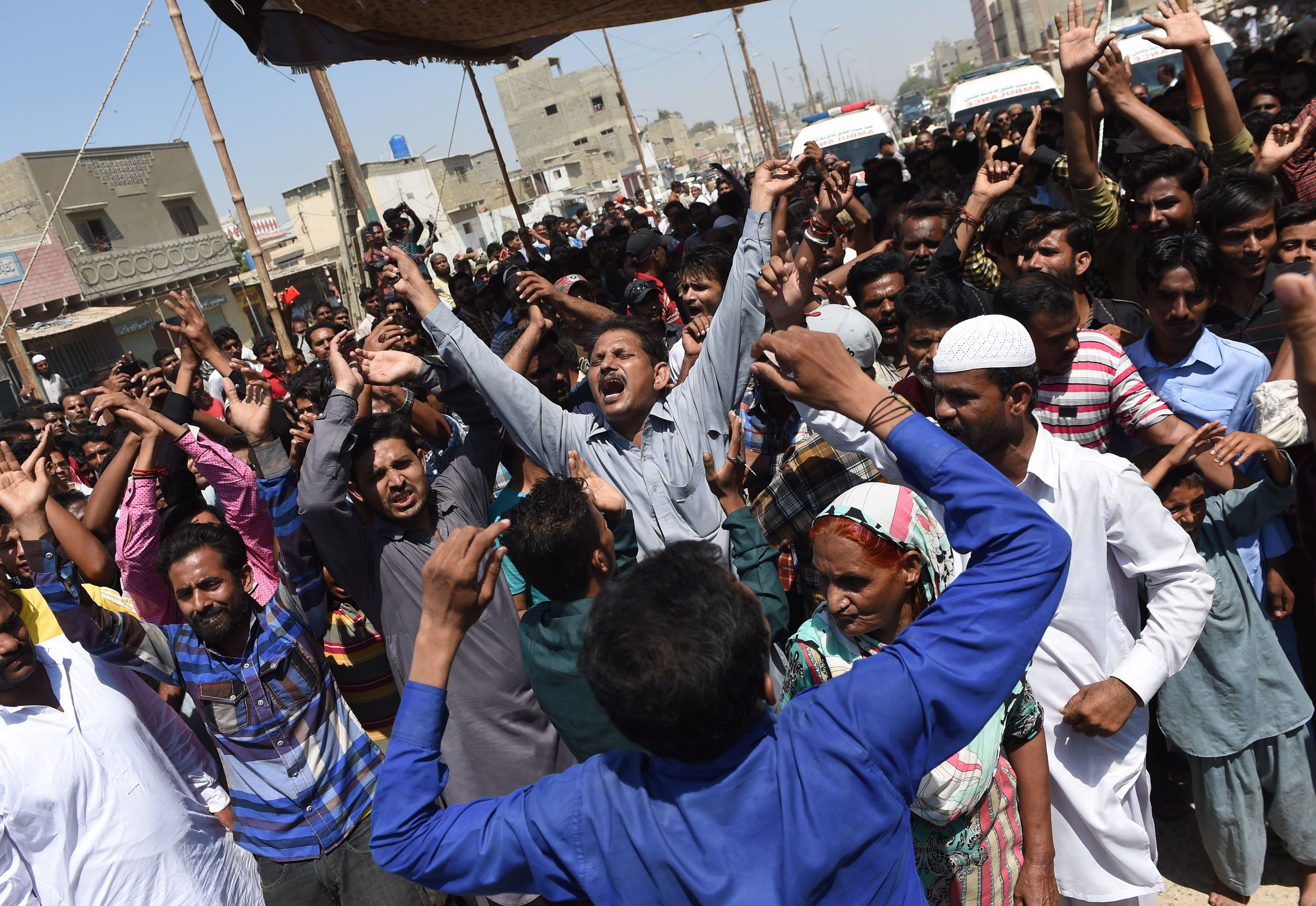
The intensity of the crackdown against the MQM workers declined significantly after the party’s success in the by-elections on the NA-246 Azizabad constituency, which became vacant when Nabil Gabol left the MQM. The intensity declined further with MQM’s success in the local government elections in Karachi in December last year. “Just as it was about to leave us, the year 2015 gave us hope in the face of grief that we had borne from the beginning of the year,” MQM leader Khalid said.
However, the party has made a list of all the men it had lost since the Karachi operation began in 2013: more than 55 workers have been killed in an extra-judicial manner, over 3,200 arrested men have been released on bail but over 1,000 are still in prison. The party claims that more than 125 workers are missing.
“We have had through tough times. Our workers were scared and, therefore, to ensure their security we had asked elderly workers and women take over the matters. But since people of Karachi have once again chosen us, and things will now change for better, I think the young men will soon join the party’s affairs, repeating the history of 1992,” says Aminul Haq, the party’s spokesperson, who has been in MQM for 30 years now.
(With additional reporting by Fawad Hasan)



